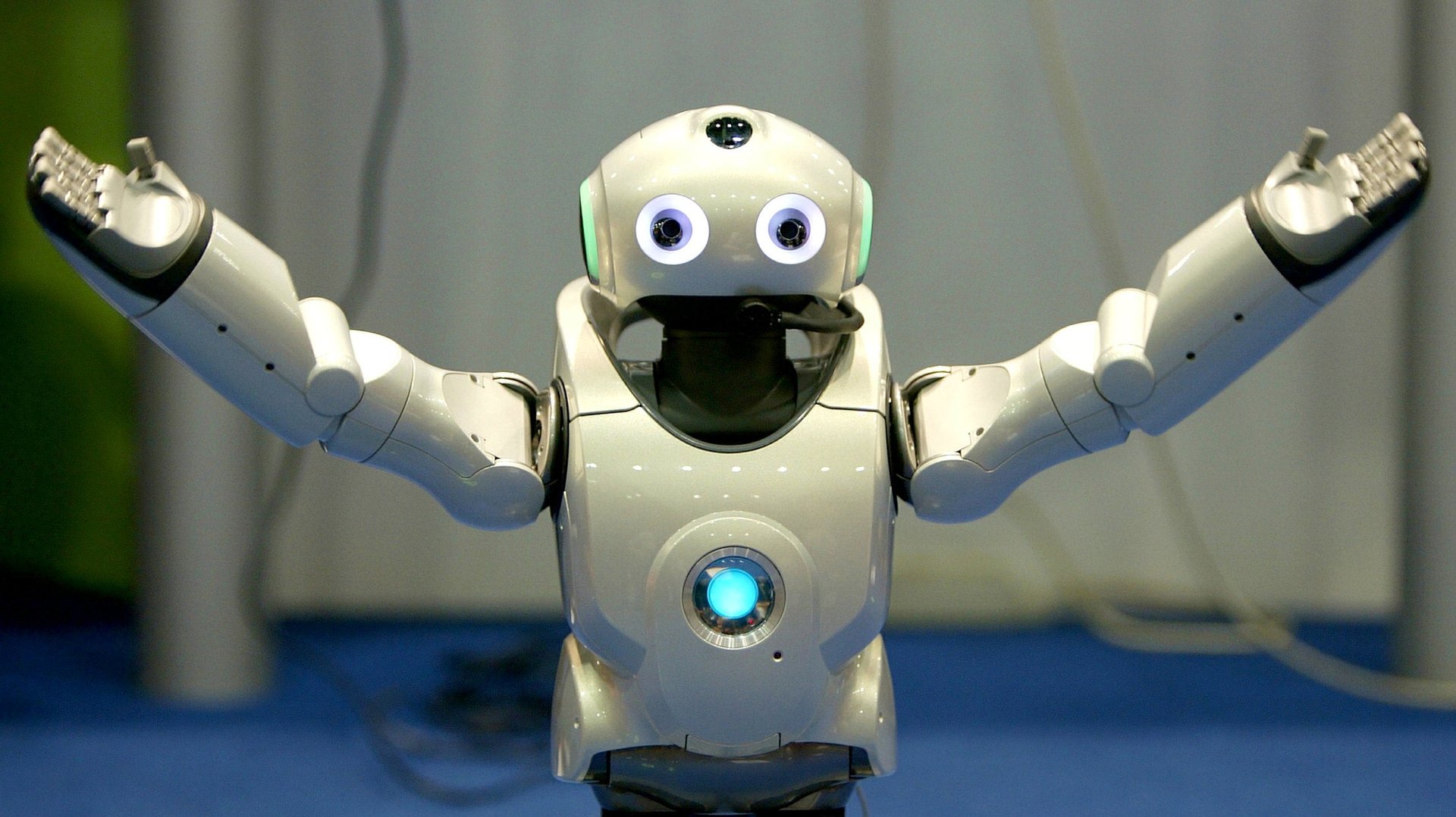Apply now for the job of the future: “Robot helper,” a human who serves robot needs
Robots’ abilities are largely determined by what they’re programmed to do. But once the code is written and the machine is up and running, artificially intelligent machines (AIs) can learn from experience and from the humans around them.


Robots’ abilities are largely determined by what they’re programmed to do. But once the code is written and the machine is up and running, artificially intelligent machines (AIs) can learn from experience and from the humans around them.
Which means that, as AIs take on a growing role in the workplace, a new role is opening up for humans: The robot’s assistant.
The New Scientist notes that AI trainers who work as “robot’s helpers” already exist at several tech companies: Facebook, virtual assistant start-up Clara Labs, and Interactions, a company that builds AI to handle customer service calls.
At Facebook, AI trainers are helping a new digital assistant called M, which works as a concierge service to make reservations, order delivery, and send reminders through Facebook messenger. The product is being trialled in San Francisco, and a host of humans work to make sure that M’s recommendations are solid and that tables have been booked at the right restaurant.
“We’ve invented a new kind of job,” Facebook spokesman Ari Entin told the New Scientist.
Alex Lebrun, who is in charge of M at Facebook, told the New Scientist that there will always be a need for AI trainers. “Once we learn something, there is something else more complex, it’s like a threshold that is expanding. The more we learn, the more there is to learn. It is never-ending learning,” he said.
Working for a robot may be an unnerving idea (perhaps even more so than a robot taking your job), but it could well become increasingly common.
James Young and Derek Cormier, computer scientists from the University of Manitoba, argue in the Harvard Business Review that robots could soon have the skills needed to be managers. They write:
A social robot could keep perfect record of project progress, provide real-time scheduling and decision support, and hold perfect recall (and remind others) of complex policies and procedures, all while communicating with people in a natural, social way. Over time, these robots may become references that we learn to trust, and it is even conceivable that such robots be placed in management-like positions where they can remind a team of deadlines, procedures, and progress.
And a robot boss could well have the same authority as a human supervisor. Young and Cormier conducted an experiment (pdf), which has been accepted for publication in the Journal of Human Robot Interaction, in which 27 participants were asked to rename files from .jpg to .png formats for 80 minutes. Participants were told they could leave once the researchers had collected enough data but, when they tried to quit, they were told a series of phrases to keep them at work, including, “We haven’t collected enough data yet,” and “It’s essential that you continue.” About half were told this by a human supervisor, while the rest were given their instructions by a “harmless-looking robot with a child-like voice.” Young and Cormier found that around half of those—six participants in total—obeyed the robot until the end, and many reacted to it as though it were human, offering compromises and logical arguments to persuade the robot.
Meanwhile, MIT research has found that human employees are more productive when a robot allocates tasks (pdf). The researchers set up a manufacturing environment where humans worked alongside robots, and found that the workforce was satisfied when tasks were planned, co-ordinated and delegated according to an algorithm.
Daniel Browy, who created Automan software to delegate work to humans via online marketplaces, told the BBC, “Honestly, it is actually better for workers having computerised bosses.”
In some ways, a robot could make a better boss than a human—after all, AI isn’t prone to favoritism, bad moods, or prejudice. Even so, many people might instinctively prefer a bad-tempered human boss to a robot overlord.